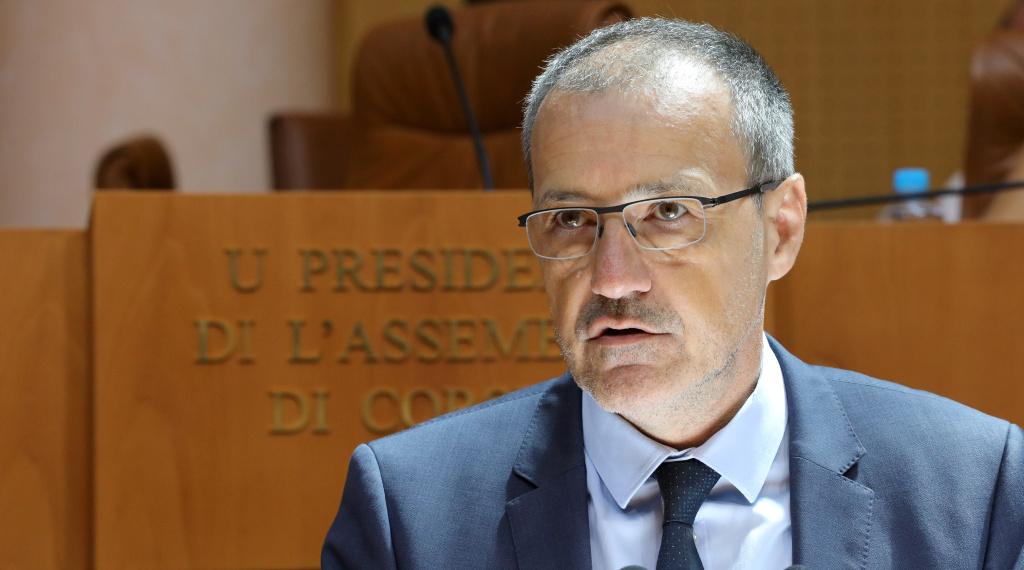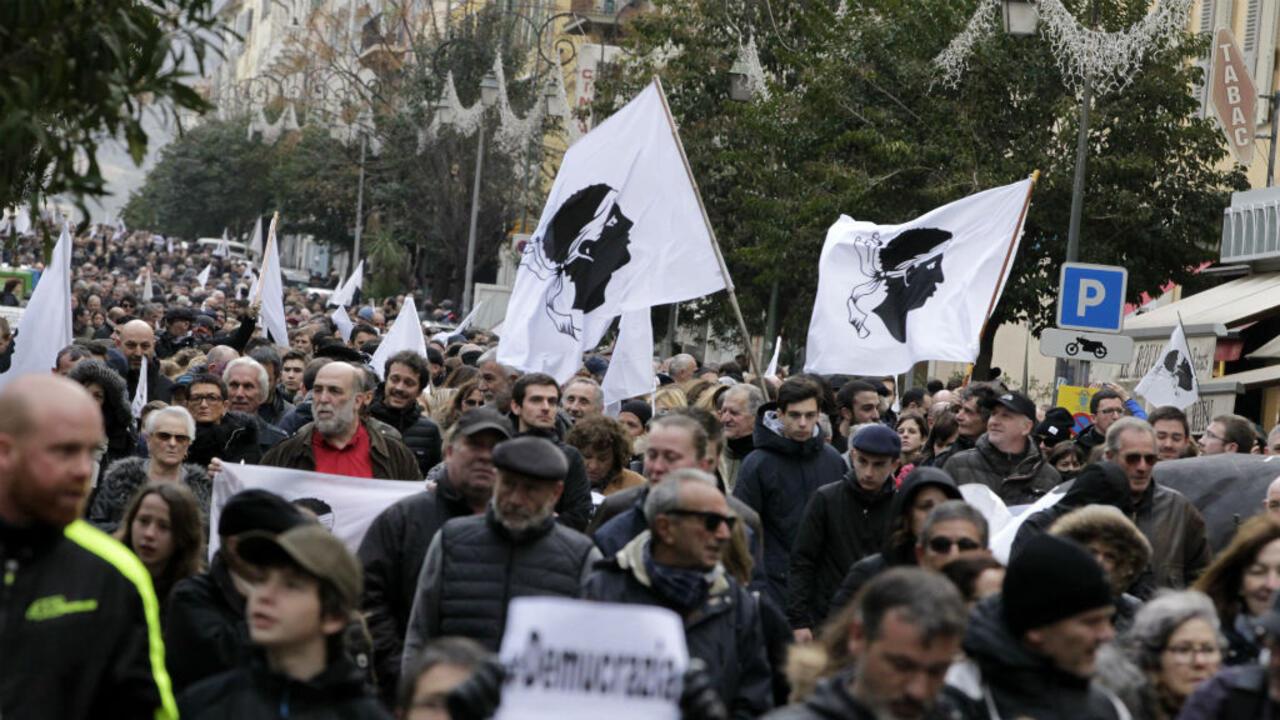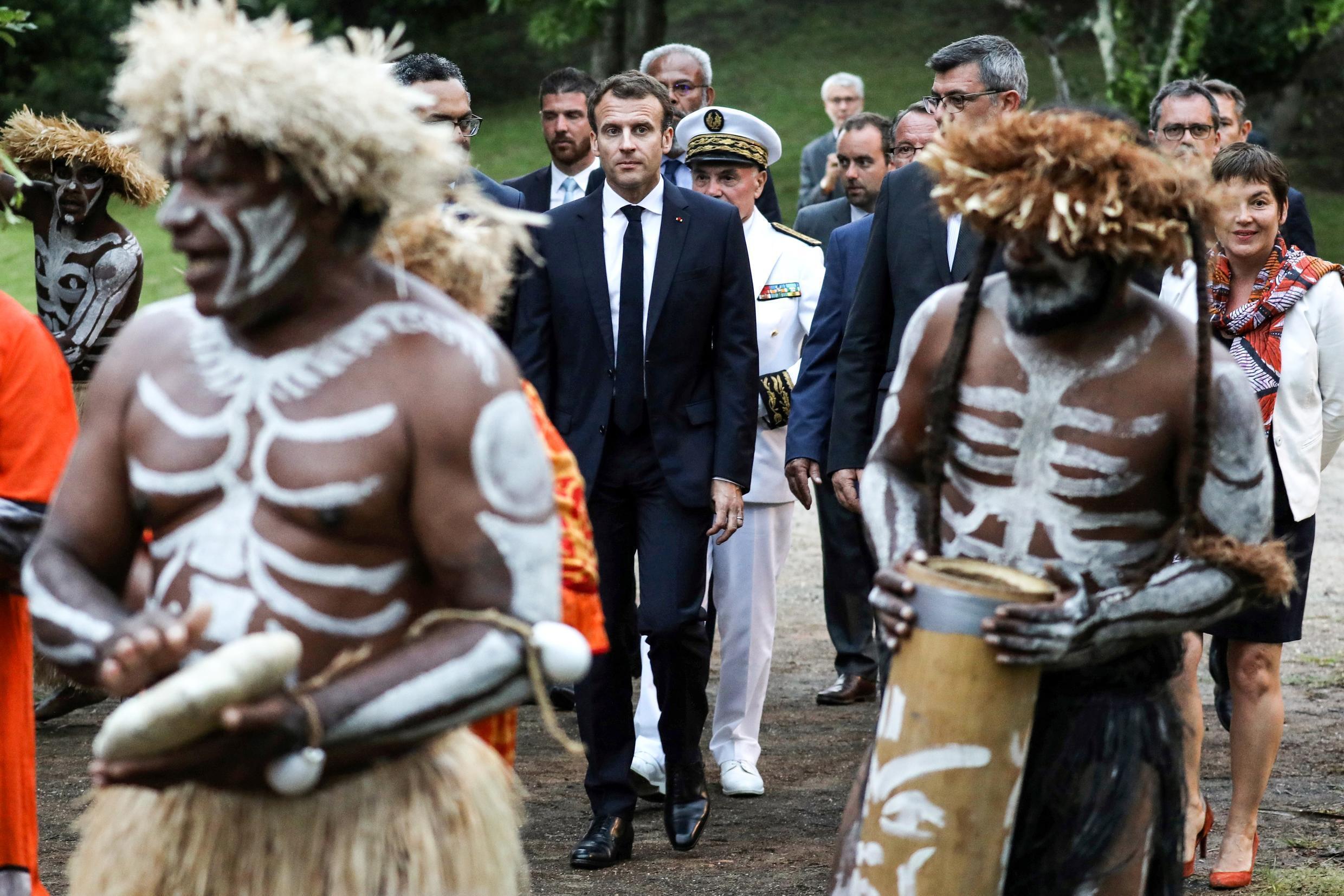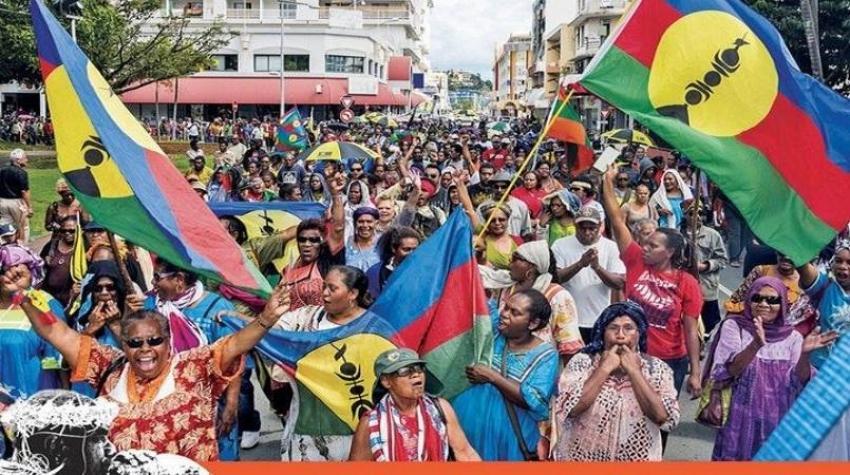Corsican independence movement gains traction amidst autonomy debate Pursuit for self-determination underway - Talamoni
"Our goal as Corsican independentists is sovereignty vis-à-vis France. However, within the Corsican National Movement, there exists a faction of autonomists seeking greater power within the framework of the French Republic," Jean-Guy Talamoni, Corsican politician and nationalist, who was President of the Corsican Assembly from from 2015 to 2021, said in an exclusive interview with Caliber.Az news website.
Corsica is currently not in a phase of actively pursuing independence, as the independence movement remains relatively weak. However, we acknowledge that the momentum of the movement has increased significantly in recent years, although it has not yet reached a point where it could significantly impact a self-determination referendum.

Therefore, supporters of independence must continue their efforts to persuade more Corsicans to their cause. We believe that in the coming years, the conditions will be more favorable for a self-determination process. This stance differs from ours entirely. Therefore, we must persist in our efforts to convince others that Corsica's solution lies not in autonomy, but in complete and unconditional independence.
Macron's gambit sparks debate & deliberation in Corsica
Meanwhile, opponents of French President Emmanuel Macron are vehemently accusing him of eroding the very fabric of the French nation, casting his policies as a threat to the country's fundamental identity.
Meantime, Corsicans fervently cling to their distinct cultural heritage, proudly asserting their historical significance by underscoring that Napoleon Bonaparte was born on their island, stressing Corsica's unique place in French history.
The forthcoming session of the Corsican Territorial Community Assembly is poised to deliberate on an agreement forged between the French government and Corsican leadership. This pivotal agreement seeks to meticulously define the allocation of powers between the central government in Paris and local Corsican authorities, with the overarching aim of tailoring French laws to better suit the specific needs and nuances of Corsican society.
In essence, Corsica stands on the brink of significant autonomy - a development championed by President Macron himself. However, potential obstacles loom large, particularly within the national parliament, where staunchly right-wing factions, traditionally steadfast in their support of a centralized unitary state, may vehemently oppose any dilution of the central government.
The proposed agreement, recently presented to the Corsican parliament, outlines a vision for sweeping autonomy. Interior Minister Gerald Darmanin has confirmed the conclusion of an agreement about "autonomy within the French republic".

This agreement is slated for inclusion into the French constitution, underscoring Corsica's rich historical legacy and pledging recognition for the Corsican language - a cornerstone demand of the local population, deeply rooted in their cultural identity.
The Corsican language, subject to scholarly debate over its classification as a dialect of Italian or an independent language, serves as a potent symbol of Corsican pride and cultural resilience. While the island's past bore witness to violent separatist movements, recent years have seen a notable shift towards peaceful advocacy, albeit punctuated by sporadic incidents of unrest.
The decisive victory of autonomy supporters in the 2021 Corsica Assembly elections - most notably the Femu party led by Gilles Simeoni - serves as a compelling mandate for change. Despite the right-leaning tendencies of the separatist factions, they face staunch ideological opposition from mainland French right-wing elements.
Reflecting on negotiations in Paris, Simeoni cautiously acknowledged the progress made, likening Corsica's journey to reaching the semi-finals of a long and arduous contest. Yet, he hinted at further challenges lying ahead, potentially emanating from French parliamentarians resistant to ceding autonomy to Corsica.
For Minister Darmanin, the issue of separatism is not new terrain. In 2022, he confronted widespread protests triggered by the tragic murder of Yvan Colonna - a revered figure among Corsican separatists. Yvan Colonna, an Italian/Corsican nationalist, was convicted for the assassination in 1998 of the prefect of Corse-du-Sud, Claude Érignac.
President Emmanuel Macron, echoing Darmanin's sentiment, has endorsed autonomy as a promising avenue for resolving the protracted Corsican conflict.
Proponents of autonomy draw parallels with France's overseas territories, such as New Caledonia, where similar movements for self-governance have gained traction. However, Corsica's unique geographic proximity to mainland France, coupled with its integral role in the national narrative, presents distinct challenges.
While evoking memories of Algeria's tumultuous struggle for independence, it's important to underscore the glaring differences between the two cases. Corsica's relatively peaceful path towards autonomy contrasts starkly with Algeria's fraught history of colonial oppression and armed resistance.
Furthermore, French authorities have signaled a willingness to engage in dialogue, distinguishing Corsica's trajectory from that of its colonial past.
Economically intertwined with France, Corsica stands to benefit from maintaining its ties with Paris, a stark departure from Catalonia's economically self-sufficient stance vis-à-vis Spain. These distinctions underscore the multifaceted nature of Corsica's quest for autonomy within the French republic.
New Caledonia: Navigating political tensions & French mediation
New Caledonia's quest for independence has been a long-standing and deeply rooted aspect of its political landscape. The failed third independence referendum in December 2021 underscored the persistent desire for self-determination among certain factions, particularly the Kanak independence leaders.
Despite setbacks and ongoing divisions, there remains a palpable thirst for autonomy and sovereignty, as evidenced by continued efforts to engage in dialogue with French authorities and pursue avenues for international recognition.

However, differing perspectives on the timeline and mechanisms for achieving independence, as well as concerns over economic stability and geopolitical dynamics, continue to shape the discourse surrounding New Caledonia's future.
France’s Minister of Interior and Overseas Territories Gérald Darmanin visited Noumea, employing tactics to sway local factions towards consensus on New Caledonia's political trajectory. This included employing threats of unilateral action and leveraging geopolitical dynamics, notably referencing China. Though incremental progress was achieved, underlying divisions persist.
Following the setback of the failed third independence referendum in December 2021, characterized by independence leaders as disenfranchising, tensions have simmered.
France has actively mediated discussions on the territory's governance over the past 18 months, employing a mix of incentives and coercion, citing its economic support to New Caledonia as a bargaining chip while also warning of the potential imposition of solutions if local consensus eludes.
A major sticking point remains the rejection by Kanak independence leaders of the referendum outcome, which they boycotted due to grievances regarding the timing amidst the COVID-19 pandemic. Despite participation in bilateral talks with Minister Darmanin, they continue to resist trilateral discussions with local loyalist parties.
What are Darmanin’s proposals?
In an effort to foster cooperation, Darmanin presented three proposals. First, he proposed a timeline for self-determination within one or two generations, which was promptly dismissed by independence leaders seeking a more immediate pathway via international channels like the UN and the ICJ.
Second, Darmanin hinted at the possibility of further devolving core sovereign responsibilities to New Caledonia, although independence leaders remain skeptical given historical precedent.
Lastly, he addressed the contentious issue of voter eligibility in provincial elections, slated for May 2024.

The current restriction, favoring indigenous Kanaks, is a source of contention among loyalists who advocate for equal suffrage. However, deeper renegotiation of election processes and provincial assemblies, established under the expiring Nouméa Accord, may be necessary to address underlying grievances and ensure equitable representation.
Darmanin suggested a seven-year residency requirement before voting, but loyalists preferred three years, while some independence leaders leaned towards 10 years with further discussion. FLNKS (Kanak and Socialist National Liberation Front) proposed simulations to explore electoral options within a broader political agreement.








